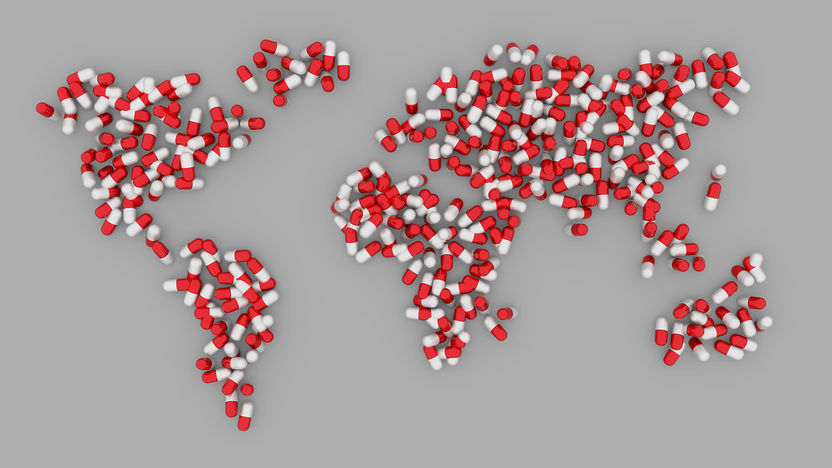Iran Becomes Game Changer for Gulf Region’s Pharma Market
Changed situation requires adaption of supply chains
With a projected annual growth rate of 9.2% by 2020 the Gulf Countries are one of the fastest growing pharmaceutical markets in the world. At the same time, the region is battling various challenges such as limited workforce resources, changing regulations as well as limited research and development capabilities. Local governments, pharma manufacturers and logistics service providers have no alternative but to make decisive changes to their supply chains if they want to capitalize on the significant market opportunities. This is the result of CAMELOT Management Consultants’ current market report „Blooming and Booming: The Pharmaceutical Market in the Gulf Region“.

jniittymaa0, pixabay.com, CC0
„The pharmaceutical industry has been turning its attention to the gulf region for quite some time. The opening of the Iranian market gives additional impetus to local developments. The aim of our market report is to make these developments transparent and to identify market opportunities as well as pitfalls for pharma manufacturers and logistics service providers”, says Dr. Josef Packowski, CEO at CAMELOT.
Enormous growth
For the pharmaceutical sector in Middle East, comprising mainly the six “Gulf Cooperation Council” (GCC) states Bahrain, Kuwait, Qatar, UAE, Saudi Arabia and Oman plus Iran, an annual growth rate of 9.2% by 2020 is projected. In Germany, by comparison, the growth rate for the same period is only 1.7 %.
Population growth, an increasing life expectancy but also prevalence of lifestyle diseases such as diabetes and obesity require a domestic pharma production in Middle East.
Impact on supply chains
Supply Chain Management in Middle East faces diverse challenges, above all when it comes to the local infrastructure and the availability of skilled personnel. Establishing logistics hubs in free trade zones is a strategy to make supply chains more agile. In order to increase flexibility and reduce complexity, more and more pharma producers use valued-added services from logistics service providers. „In the Gulf region, value-added services such as secondary packaging and postponement become increasingly important“, says Mohammed Dayazada, co-author of the study and Competence Center Lead at CAMELOT in Dubai. By contrast, initiatives aiming at improving workforce capabilities have not reached a satisfying level yet.
Game changer Iran
Another key result of the study is that the opening of the Iranian market will be a significant game changer for the region. „Iran is one of the last untapped pharmaceutical markets in the region. The Iranian market provides pharmaceutical manufacturers and logistics service providers numerous economic benefits and profitable opportunities“, says Melanie Lenhardt, co-author of the study and Consultant at CAMELOT in Dubai. In comparison,
Saudi Arabia, the largest pharmaceutical market among the GCC states, remains to have restrictive regulations which limit the opportunities for regional distribution and manufacturing. The near future will show whether Saudi Arabia as a rather slowly opening market will offer more attractive opportunities and benefits for investors than the fast opening Iranian market.
Other news from the department business & finance

Get the life science industry in your inbox
By submitting this form you agree that LUMITOS AG will send you the newsletter(s) selected above by email. Your data will not be passed on to third parties. Your data will be stored and processed in accordance with our data protection regulations. LUMITOS may contact you by email for the purpose of advertising or market and opinion surveys. You can revoke your consent at any time without giving reasons to LUMITOS AG, Ernst-Augustin-Str. 2, 12489 Berlin, Germany or by e-mail at revoke@lumitos.com with effect for the future. In addition, each email contains a link to unsubscribe from the corresponding newsletter.






















































